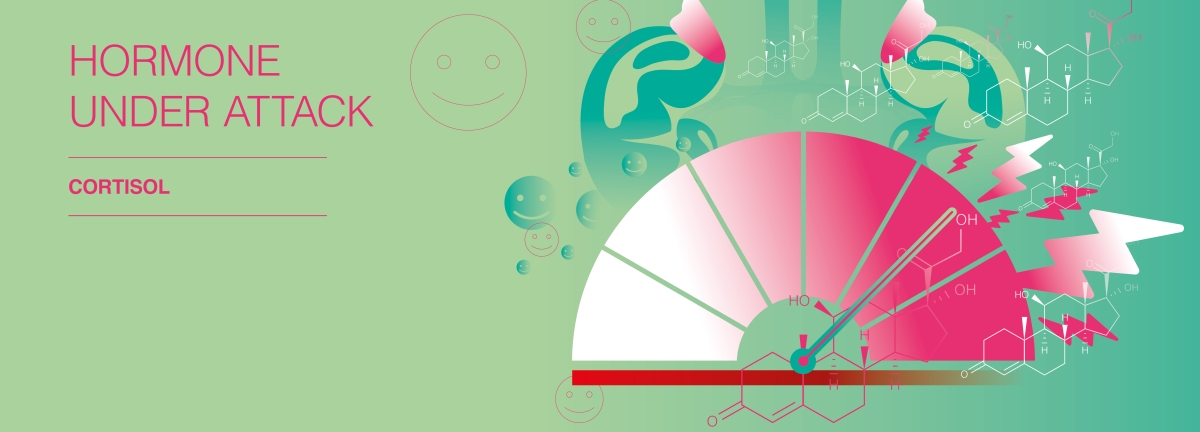
Cortisol – the stress marker at the focus of research
Have you ever felt your heart beat faster whenever you’re about to give an important presentation, or when you get stuck in traffic on the way to an appointment? This reaction to stress is closely linked to a particular hormone called cortisol. This hormone helps us to stay alert and ensures that we are able to act in stressful moments. However, the importance of cortisol extends far beyond acute moments of stress – it’s also a key focus in many other areas of research, since it influences numerous physiological processes.
Energy through breakdown
Cortisol is produced in the adrenal cortex and belongs to the group of glucocorticoids. It is primarily known for its role as a stress hormone that is released in increased amounts in challenging situations. But its functions are more diverse than that: Cortisol activates catabolic metabolic processes to quickly provide the body with energy in stressful situations. It ensures that proteins from the muscles are broken down and converted into glucose. These mechanisms enable rapid reactions in critical moments. However, if cortisol is elevated over the long term, this loss of muscle mass leads to undesirable effects, such as muscle wastage and the accumulation of fat.
The link between chronic stress and metabolic disorders is an important area of research, and there is evidence that this increases the risk of diseases such as diabetes and obesity.
Inhibition of neurogenesis
In addition to its effect on metabolism, cortisol also affects the brain. The hippocampus – which is responsible for memory and learning – is particularly sensitive to high levels of cortisol. Chronically high cortisol levels can inhibit the formation of new nerve cells – so-called neurogenesis – which has a negative impact on cognitive performance and memory.
In addition, chronic stress can increase the risk of mental illnesses, such as depression and anxiety disorders. This makes cortisol a central topic in neuroscience and stress research.
Cortisol throughout the day
Cortisol follows a circadian rhythm. This means that cortisol levels are subject to natural fluctuations throughout the day. In the morning, shortly after waking up, it reaches its peak, helping you get the day off to a good start. Throughout the day, cortisol levels then gradually decrease until they reach their lowest point in the evening, preparing the body for sleep.
The hectic everyday life of our modern world leads to many people feeling chronically stressed. Be it exam anxiety, professional challenges or personal obligations – all of these factors contribute to our cortisol levels remaining elevated for longer periods of time.
Research is investigating how disruptions to this rhythm – such as those caused by lack of sleep, shift work or stress – affect health and what the long-term impacts of this are.
Measurement of cortisol in the laboratory
Cortisol is usually measured in blood, saliva or urine. Saliva samples are particularly common, since they offer a simple, non-invasive method for determining free cortisol levels. This method is often used in studies to measure the stress levels of subjects.
Enzyme immunoassays (ELISA) and chemiluminescent methods are used for measurement, which make it possible to obtain precise data on cortisol levels and thus create in-depth analyses of stress reactions and circadian fluctuations.
Cortisol in research: A multifaceted topic
Cortisol is a central research subject in many disciplines, including human medicine, psychology and animal research. Analysing cortisol levels provides insight into the relationship between stress and health, and helps to develop new treatment approaches to prevent stress-related diseases. Cortisol also plays a role in animal research: It is used as a biomarker to measure the stress level of animals and monitor their well-being.
Whether you’re a professor, scientist or laboratory manager – we have all the right materials you need to make your research even more successful. Find out more at https://www.carlroth.com/en/en/.
https://www.apotheken-umschau.de/diagnose/laborwerte/cortisol-das-stresshormon-740779.html

